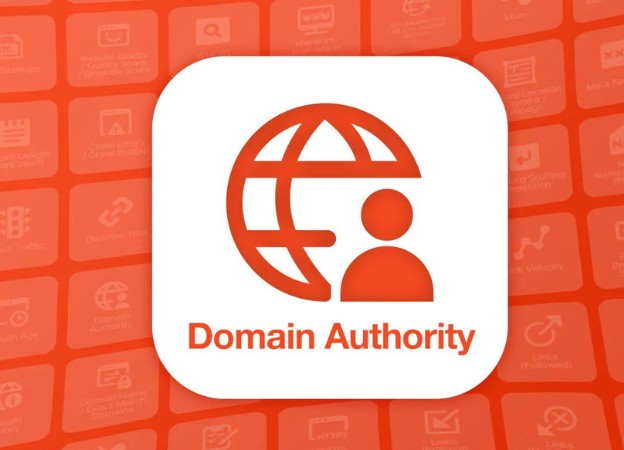B2B System ROI: Justifying Your Custom Software Investment
In today's competitive business landscape, organizations are constantly seeking ways to optimize operations, enhance customer relationships, and drive revenue growth. Custom B2B systems have emerged as a powerful tool for achieving these goals. However, investing in a custom solution requires careful consideration and a clear understanding of the potential return on investment (ROI). This article explores the various ways a custom B2B system can deliver significant value and helps you justify the investment to stakeholders.
Introduction: Measuring the Value of a Custom B2B System
A custom B2B system is a software solution tailored to the specific needs of your business and its interactions with other businesses. Unlike off-the-shelf software, a custom system is designed to address your unique challenges and opportunities. Quantifying the B2B system value can be complex but essential for securing buy-in and demonstrating the long-term benefits. We need to consider both tangible and intangible benefits when evaluating B2B software investment. Tangible benefits include cost savings and revenue increases, while intangible benefits encompass improved decision-making and enhanced scalability. Successfully evaluating B2B system ROI means looking at the whole picture.
Cost Savings: Automation, Efficiency, and Reduced Errors
One of the most compelling arguments for investing in a custom B2B system is its potential to generate significant cost savings. These savings can be realized through:
- Automation: Automating repetitive tasks, such as order processing, invoicing, and data entry, can free up valuable employee time and reduce labor costs.
- Efficiency: Streamlining workflows and optimizing processes can improve overall efficiency, allowing your team to accomplish more in less time.
- Reduced Errors: Minimizing manual intervention reduces the risk of human error, leading to fewer costly mistakes and improved data accuracy.
Imagine a scenario where your sales team spends hours manually entering order information into your CRM system. A custom B2B system could automate this process, automatically pulling order data from customer portals and updating your CRM in real-time. This not only saves time but also reduces the likelihood of errors that could lead to fulfillment issues or customer dissatisfaction. Understanding the impact of these advantages allows for a more thorough B2B system cost justification.
Revenue Growth: Improved Customer Experience and Increased Sales
A custom B2B system can also drive revenue growth by improving the customer experience and increasing sales. Consider these aspects:
- Improved Customer Experience: Providing customers with a seamless and personalized experience can increase customer satisfaction and loyalty, leading to repeat business and positive word-of-mouth referrals.
- Increased Sales: Streamlining the sales process, providing accurate product information, and offering personalized recommendations can increase conversion rates and drive sales growth.
For example, a custom B2B portal could provide customers with self-service access to order information, product catalogs, and support resources. This empowers customers to find the information they need quickly and easily, reducing their reliance on your customer service team and freeing them up to focus on more strategic initiatives. Moreover, a custom system can integrate with your marketing automation platform to deliver targeted marketing messages and personalized product recommendations, increasing the likelihood of a sale.
Improved Decision-Making: Data-Driven Insights
A custom B2B system can provide valuable data-driven insights that can inform better decision-making across your organization. By centralizing data from various sources, a custom system can provide a comprehensive view of your business operations, enabling you to:
- Identify Trends: Analyze sales data, customer behavior, and market trends to identify opportunities for growth and improvement.
- Optimize Processes: Identify bottlenecks in your workflows and optimize processes to improve efficiency and reduce costs.
- Make Informed Decisions: Make data-driven decisions based on real-time insights, rather than relying on gut feeling or anecdotal evidence.
Imagine being able to track the performance of different marketing campaigns in real-time, identifying which campaigns are generating the most leads and sales. This allows you to optimize your marketing spend and focus your resources on the most effective channels. Similarly, you could track customer satisfaction scores and identify areas where you need to improve your customer service.
Enhanced Scalability: Supporting Future Growth
As your business grows, your B2B system needs to be able to scale to accommodate increasing transaction volumes, data storage needs, and user counts. A custom B2B system is designed to be scalable, allowing you to easily add new features and functionality as your business evolves. This ensures that your system can continue to meet your needs as your business grows, without requiring a complete overhaul. B2B system benefits should always consider the long game and scalability.
Competitive Advantage: Differentiation in the Market
In today's competitive market, it's essential to differentiate your business from the competition. A custom B2B system can provide a competitive advantage by:
- Meeting Unique Needs: Addressing the specific needs of your customers and partners in a way that off-the-shelf software cannot.
- Improving Efficiency: Operating more efficiently than your competitors, allowing you to offer lower prices or higher quality products and services.
- Offering Unique Features: Providing unique features and functionality that are not available from other providers.
For instance, you can integrate a custom B2B system with IoT devices to enable real-time monitoring of inventory levels and automate replenishment orders. This can give you a significant advantage over competitors who are still relying on manual inventory management processes.
Calculating Your ROI
Calculating the ROI of a custom B2B system involves quantifying the B2B software ROI. The basic formula is:
ROI = ((Gain from Investment - Cost of Investment) / Cost of Investment) * 100
To calculate your ROI, you'll need to estimate the potential benefits and costs of your custom B2B system. Consider the following factors:
- Cost of Development: Include all costs associated with designing, developing, and implementing the system.
- Ongoing Maintenance Costs: Estimate the ongoing costs of maintaining and supporting the system, including software updates, security patches, and technical support.
- Cost Savings: Quantify the potential cost savings from automation, efficiency improvements, and reduced errors.
- Revenue Growth: Estimate the potential revenue growth from improved customer experience, increased sales, and new market opportunities.
- Intangible Benefits: While harder to quantify, consider the value of improved decision-making, enhanced scalability, and competitive advantage. Assign a conservative estimate based on industry benchmarks or expert opinions.
For example, let's say the development cost is $100,000, and the annual maintenance is $20,000. The system is projected to save $50,000 per year in labor costs and increase revenue by $30,000 per year. Over five years:
Total Cost = $100,000 + (5 * $20,000) = $200,000
Total Gain = (5 * $50,000) + (5 * $30,000) = $400,000
ROI = (($400,000 - $200,000) / $200,000) * 100 = 100%
This indicates a 100% return on investment over five years. Always conduct a thorough assessment to ensure the accuracy of your projections and remember to revisit your ROI calculation regularly to track the actual performance of your system.
Conclusion: Making a Data-Driven Decision
Investing in a custom B2B system can be a significant decision, but the potential ROI can be substantial. By carefully considering the cost savings, revenue growth opportunities, improved decision-making capabilities, enhanced scalability, and competitive advantages, you can make a data-driven decision that will benefit your organization for years to come. Remember to focus on quantifying the tangible benefits and assigning a realistic value to the intangible benefits. With a clear understanding of the potential ROI, you can confidently justify the investment to stakeholders and embark on a journey towards greater efficiency, profitability, and market leadership.
Code Smart Web
At CodeSmartWeb.co.uk, we design and develop powerful, scalable systems built on the Laravel PHP framework, tailored to your brand and growth goals. From interface to infrastructure, we handle the full software lifecycle—from UI design to DevOps deployment—delivering secure, performant platforms that convert.












